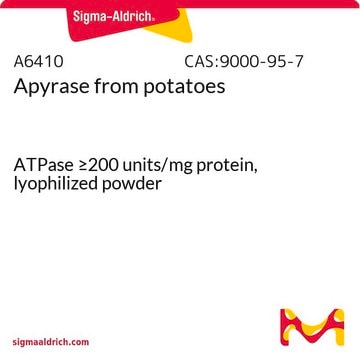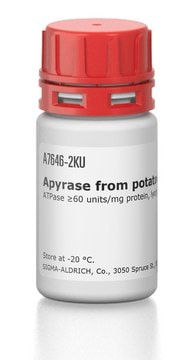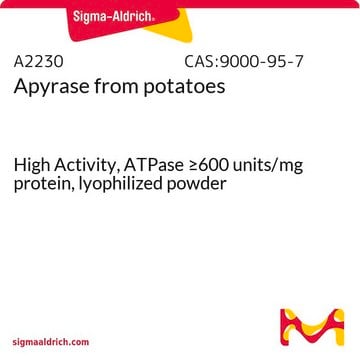A6132
Apyrase from potatoes
ATPase ≥3.0 units/mg protein, lyophilized powder
Synonym(s):
Adenosine 5′-diphosphatase, Adenosine 5′-triphosphatase
About This Item
Recommended Products
biological source
potato
Quality Level
type
Grade I
form
lyophilized powder
ATPase activity
≥3.0 units/mg protein
composition
Protein, 30-60%
storage temp.
−20°C
Looking for similar products? Visit Product Comparison Guide
Application
Reaction: ATP → ADP+Pi → AMP+2Pi.
Biochem/physiol Actions
Packaging
Other Notes
Unit Definition
Physical form
signalword
Danger
hcodes
pcodes
Hazard Classifications
Resp. Sens. 1
Storage Class
11 - Combustible Solids
wgk_germany
WGK 1
flash_point_f
Not applicable
flash_point_c
Not applicable
ppe
Eyeshields, Gloves, type N95 (US)
Certificates of Analysis (COA)
Search for Certificates of Analysis (COA) by entering the products Lot/Batch Number. Lot and Batch Numbers can be found on a product’s label following the words ‘Lot’ or ‘Batch’.
Already Own This Product?
Find documentation for the products that you have recently purchased in the Document Library.
Customers Also Viewed
Our team of scientists has experience in all areas of research including Life Science, Material Science, Chemical Synthesis, Chromatography, Analytical and many others.
Contact Technical Service

















